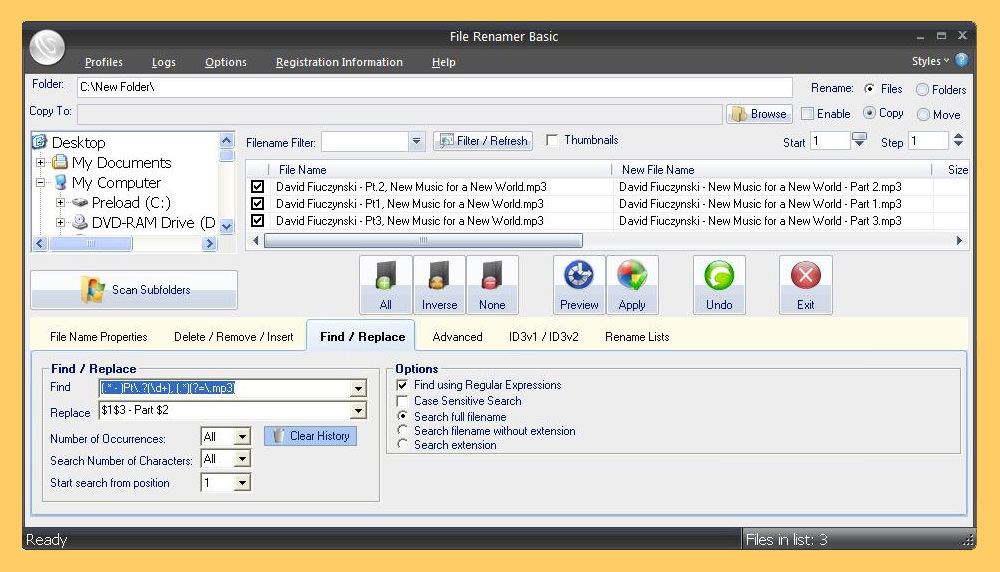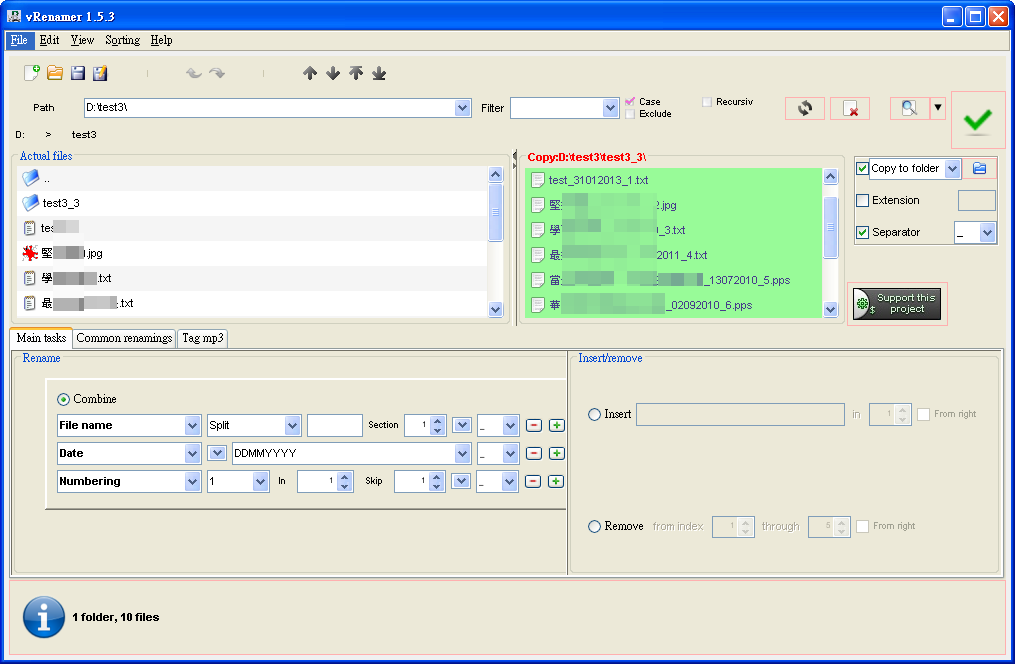

Features realtime preview, filtering, case-changing, numbering, expression validation, network support, folder renaming, and regex tutorial.
#Regex renamer download
(.) The workflow will group using 1, 2, 3 and so on. Download Now RegexRenamer is a powerful user-friendly graphical tool used to batch rename files using regular expressions. Includes support for network drives & network paths, renaming folders, renaming into subfolders (eg, replace ?file.txt? with ?subdir\file.txt?), preserving file extensions (only operate on filename), move/copy/backup before renaming, and more.Ĭontains complete documentation including examples, regex tutorial & quick reference guide. Step by step: (1) Type the regular expression to group elements of the previous filename: ( +) (.). Using the power of regexes it becomes easy to apply complex transformations to large groups of files that otherwise would not be possible with plain match & replace.įeatures include realtime regex validation, filename preview & conflict detection, file filtering by glob or regex (operate on a subset of files in a directory), flexible case-changing (change the entire filename or just the section matched by a regex), and customisable sequential numbering (set start, padding, interval, reset).

A regular expression is simply text that contains special characters that together defines a pattern that can be used to match text, in this case filenames. however, \1 should work for the groups.RegexRenamer is a powerful user-friendly graphical tool used to batch rename files using regular expressions. depending on your system you might need to change \d and \w to character classes like ] or ]. Please note: i only copy-pasted your regex please test it first with example files. type f -name "Friends*" -execdir bash -c 'mv "$1" "$ passes it on to the content of -execdirīetter explanations would be appreciated a lot :) If your linux does not offer rename, you could also use the following: find.

The first aforementioned method uses newlines as separators. The magic here is that each process in the pipeline supports the null byte (0x00) that is used as a delimiter as opposed to spaces or newlines.

Let's say I want to rename all ".txt" files to be ".md" files: find. My preferred approach, albeit more advanced.
#Regex renamer software
-p prints file paths that were processed by regex, -e executes inline script Windows software to safely rename of thousands of files via regex.type f outputs file paths (or file names.you control what gets processed by regex here!) Advanced Renamer supports the use of regular expressions for pattern searching. I did not have Perl's rename readily available on my system. A regular expression language is a powerful way of manipulating with texts. Results of perl -pe 'print $_ s/OldName/NewName/' | xargs -n2 end up being: OldName1.ext NewName1.ext type f | perl -pe 'print $_ s/input/output/' | xargs -d "\n" -n2 mv When combined with Perl's print $_ (to print the $STDIN first), it makes for a powerful renaming tool. Xargs -n2 makes it possible to print two arguments per line.


 0 kommentar(er)
0 kommentar(er)
